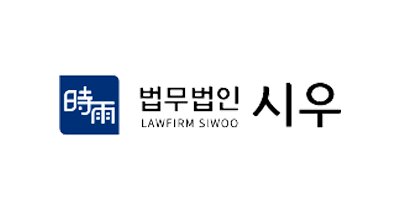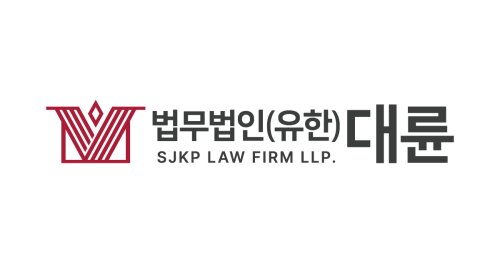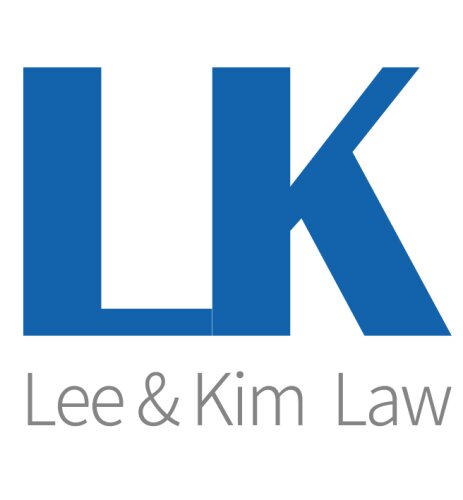Best Conveyancing Lawyers in South Korea
Share your needs with us, get contacted by law firms.
Free. Takes 2 min.
Free Guide to Hiring a Real Estate Lawyer
Or refine your search by selecting a city:
List of the best lawyers in South Korea
About Conveyancing Law in South Korea
Conveyancing refers to the legal process of transferring ownership of real estate from one party to another. In South Korea, this process involves a series of legal and administrative steps that must be meticulously followed to ensure that property rights are properly registered and protected. Conveyancing procedures cover residential homes, commercial properties, and land. Given the complexity of real estate law in South Korea, transactions typically require careful attention to contract details, verification of property titles, and compliance with local statutes.
Why You May Need a Lawyer
Many individuals and businesses seek legal assistance during conveyancing to avoid potential disputes and to ensure that the transaction complies with South Korean laws. Some common scenarios where a lawyer may be essential include:
- Purchasing or selling property for the first time
- Handling transactions involving complex ownership structures
- Buying property as a foreigner or non-resident
- Conducting due diligence to verify ownership and legal claims
- Managing property inheritance or family transfers
- Dealing with disputes over boundaries or property defects
- Ensuring compliance with zoning, land use, and development regulations
A lawyer can assist by reviewing contracts, conducting checks on the property's legal status, representing clients in negotiations, and ensuring all legal documents are properly executed and registered.
Local Laws Overview
Several key aspects of South Korean law directly impact the conveyancing process:
- Real Estate Registration: All real estate transactions must be registered with the relevant local government office. The Land Registry keeps official records of property ownership.
- Title Search: Buyers must verify that the seller has clear legal ownership and that there are no existing encumbrances, mortgages, or disputes affecting the property.
- Contract Requirements: Sales contracts must meet certain formalities, often including notarization. Both parties should clearly agree on key terms such as price, payment schedule, handover date, and what is included in the sale.
- Taxes and Fees: Property transactions incur acquisition tax, registration tax, and other fees. Sometimes tax responsibilities are negotiable between buyer and seller.
- Foreign Ownership: Foreigners may buy property in South Korea, but there are specific disclosure and registration requirements. Restrictions may apply to properties near military or protected zones.
- Disclosure Laws: Sellers are required to disclose significant defects or issues affecting the property to prospective buyers.
- Mortgage and Finance: Registration of mortgages must follow formal procedures and be officially recorded.
Frequently Asked Questions
What is the typical process for buying property in South Korea?
The process generally includes negotiating the sale, drafting and signing a contract, paying a deposit, verifying the property’s legal status, transferring the balance of funds, registering the transaction with local authorities, and obtaining the new title deed.
Is it necessary to hire a lawyer for conveyancing?
While not mandatory, hiring a lawyer is highly recommended, especially for non-Korean speakers or those unfamiliar with local property laws and procedures.
How long does the conveyancing process usually take?
The process can take from a few weeks to several months, depending on the complexity of the transaction and whether any legal or financial issues arise.
Are there any restrictions on foreign nationals buying property?
Foreigners can generally purchase property, but must comply with disclosure and registration requirements. Some areas may have restricted access due to security or environmental regulations.
What taxes do buyers and sellers need to pay?
Both parties may be liable for taxes such as the acquisition tax, registration tax, and possibly capital gains tax for sellers. These should be clarified before signing the contract.
How are disputes over property boundaries or defects handled?
Disputes are usually resolved through negotiation or litigation. Having a clear, professionally drafted contract can help prevent many common disputes.
What documents are needed for the conveyancing process?
Necessary documents typically include the sale contract, land registration certificate, tax payment certificates, identification documents, and if applicable, powers of attorney.
What is a title search and why is it important?
A title search involves reviewing public records to confirm the seller’s ownership and check for any encumbrances like liens or mortgages. This is crucial to ensure that the buyer obtains clear title.
Can property transactions be conducted remotely?
With appropriate legal authorization such as a power of attorney, it is possible to conduct transactions remotely; however, this should be managed by a trusted lawyer or representative.
How can I confirm that a property has no outstanding debts or legal issues?
A lawyer or licensed real estate agent can access public records to verify the property’s legal status, check for unpaid mortgages or liens, and ensure there are no ongoing legal disputes.
Additional Resources
For more information or assistance, consider reaching out to the following resources:
- Ministry of Land, Infrastructure and Transport - Provides regulatory guidance on property transactions and registration.
- Supreme Court of Korea (Electronic Registry) - Offers access to property registration records and legal documentation.
- Korea Real Estate Board - Publishes market information, statistics, and guidance on property sales and leases.
- Korean Bar Association - Maintains a directory of licensed lawyers specializing in real estate and conveyancing.
- Local government offices (Gu or Si offices) - Process property registrations and provide localized information.
Next Steps
If you are considering buying or selling property in South Korea and need legal assistance:
- Gather all relevant documents, including identification, proof of funds, and any existing property agreements.
- Consult with a licensed lawyer experienced in real estate transactions to review your situation and provide tailored advice.
- Request a thorough title search and due diligence on the property of interest.
- Clearly outline your objectives and make sure the terms of any agreement are fully understood before signing.
- Stay informed about local regulations and ask your lawyer for ongoing updates throughout the process.
- Follow up with local government offices to ensure all legal steps, including registration and tax payments, are completed accurately.
Careful preparation and professional guidance can help ensure a smooth conveyancing process and protect your interests in South Korea's property market.
Lawzana helps you find the best lawyers and law firms in South Korea through a curated and pre-screened list of qualified legal professionals. Our platform offers rankings and detailed profiles of attorneys and law firms, allowing you to compare based on practice areas, including Conveyancing, experience, and client feedback.
Each profile includes a description of the firm's areas of practice, client reviews, team members and partners, year of establishment, spoken languages, office locations, contact information, social media presence, and any published articles or resources. Most firms on our platform speak English and are experienced in both local and international legal matters.
Get a quote from top-rated law firms in South Korea — quickly, securely, and without unnecessary hassle.
Disclaimer:
The information provided on this page is for general informational purposes only and does not constitute legal advice. While we strive to ensure the accuracy and relevance of the content, legal information may change over time, and interpretations of the law can vary. You should always consult with a qualified legal professional for advice specific to your situation.
We disclaim all liability for actions taken or not taken based on the content of this page. If you believe any information is incorrect or outdated, please contact us, and we will review and update it where appropriate.
Browse conveyancing law firms by city in South Korea
Refine your search by selecting a city.
















